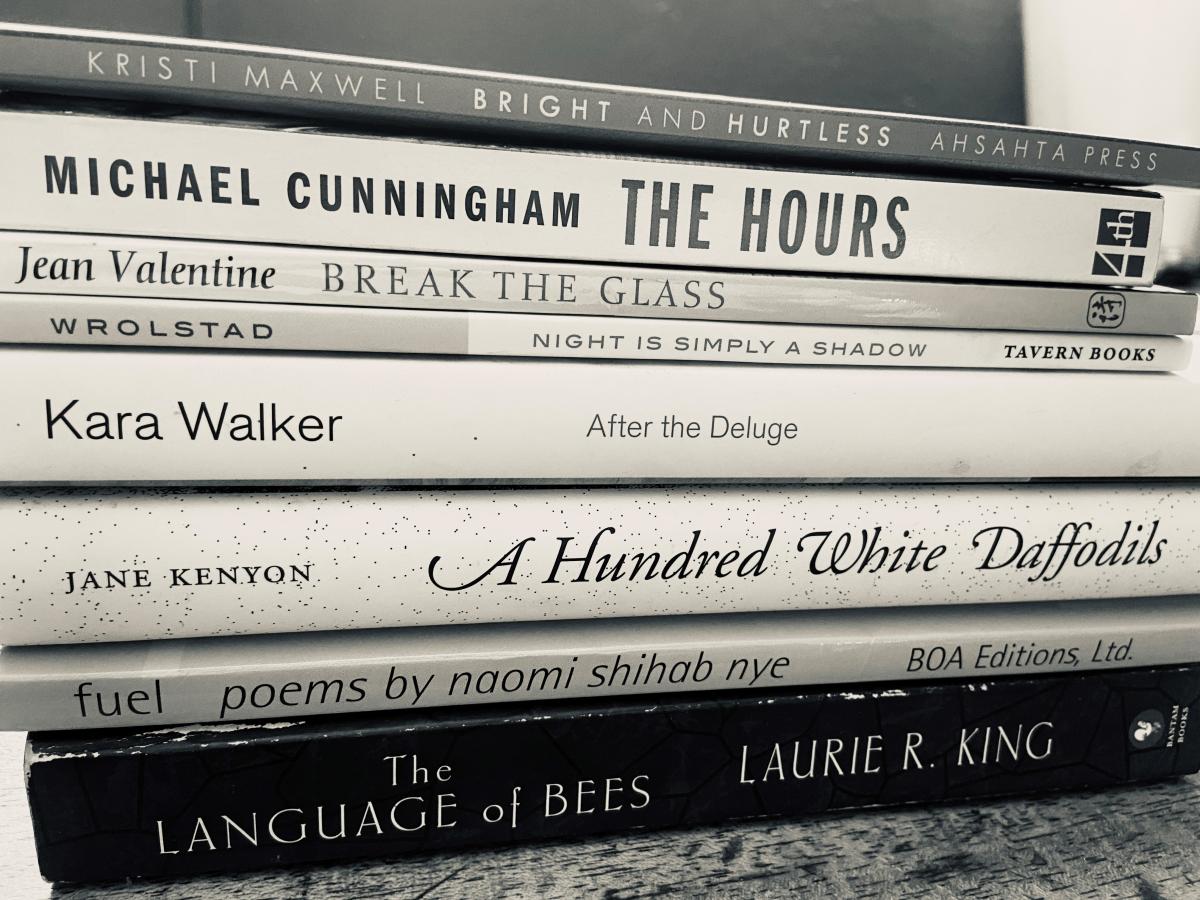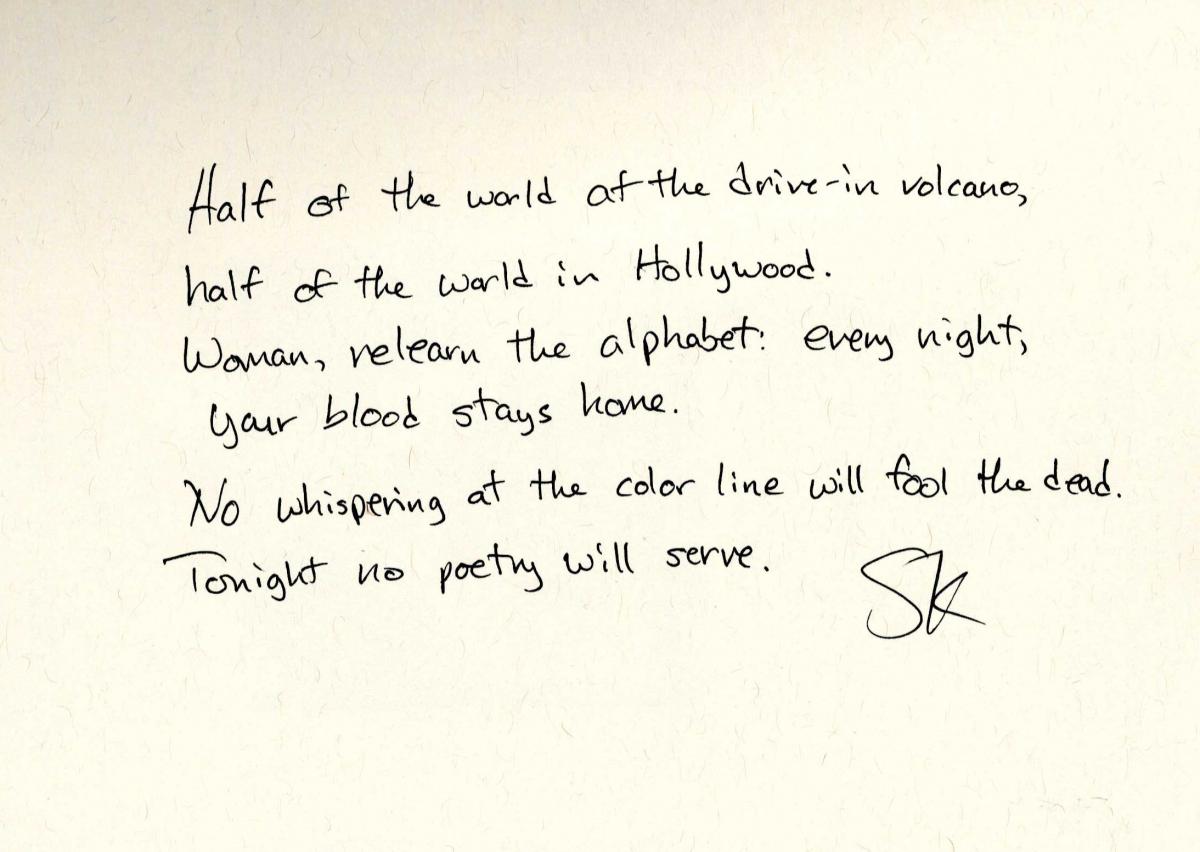When I'm in a creative rut--or when, like now, I feel a need to see familiar things a little differently--I often turn to found poetry. A found poem is just what it sounds like: a poem that you create, or "find," from words in an existing text. You can find poems anywhere: newspaper articles, textbooks, playbills...the list is limited only by your imagination. One of the types of found poetry I return to most often is the spine poem: a poem built of words found on the spines of books.
I use spine poems especially frequently with university classes who visit the Poetry Center Library, because spine poems are endlessly flexible, and because the titles in the Library's collection can be recombined in millions of ways to create poetry. You can start with a framing question (such as "Why do I write?" or "How did I grow last year?"), or you can simply start browsing, letting the titles guide you to a poem. Some poets like to use the titles exactly as they appear on book spines to create a poem; some poets like to write the titles down and then remix words to create a poem.
The good news is, you don't need a collection as big as the Poetry Center's to try spine poetry. I made the poem below from books in my home collection:

Bright and hurtless / the hours / break the glass. / Night is simply a shadow. / After the deluge, / a hundred white daffodils / fuel / the language of bees.
As I was assembling this poem, I noticed that it was quite a bit more difficult to create a poem this way than it is when I use my normal method, which is to write titles down and then remix the words into a poem. Here is example of this latter technique, which I created for a class visit at the Poetry Center:

Half of the world at the drive-in volcano, / half of the world in Hollywood. / Woman, relearn the alphabet: every night, / your blood stays home. / No whispering at the color line will fool the dead. / Tonight no poetry will serve.
Found poetry always surprises me, and there's a lot of pleasure in the surprises. Try writing a spine poem--you may be surprised, too.

